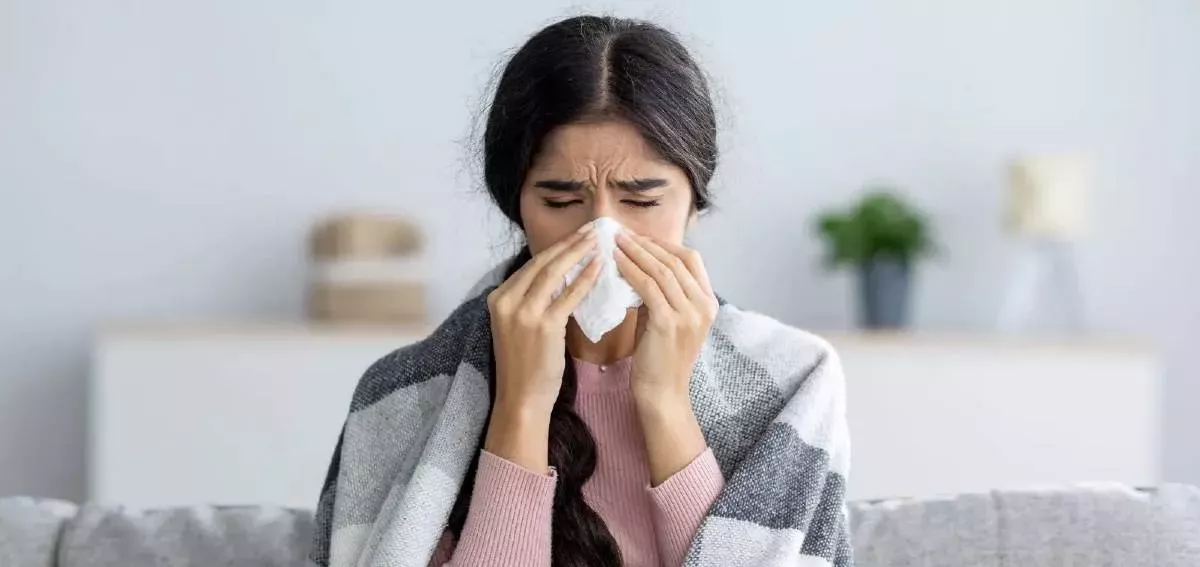The monsoon is a long-awaited season of the year. It is a season that is eagerly anticipated as it provides relief from the summer heat. However, the monsoon brings with it a slew of ailments caused by deadly viruses. Many infectious diseases are spread by the humid climate, strong rainfall and windy surroundings. The rainy season's warm and moist conditions are ideal breeding grounds for germs and diseases, and we see an upsurge in communicable diseases and other ailments. Knowing what to expect can help you protect your loved ones and yourself against diseases and care for them if they become ill.
The most common monsoon diseases are as follows:
Dengue
Dengue fever is a mosquito-borne disease spread by the Aedes Aegypti mosquito during the monsoon season. Some of the signs include:
- A high fever
- Severe Body Pain
- Rashes
- Headaches
- Low platelet count
Chikungunya
Chikungunya is a mosquito-borne disease spread by mosquitoes that breed in stagnant water. Overhead tanks, refrigerators, plants, utensils and water pipes are all breeding grounds for these mosquitos. The tiger Aedes Albopictus is the cause of this sickness. Some symptoms include:
- Fatigue
- Acute joint pain
- Chills
- A high fever
Malaria
Malaria is spread by mosquitoes called Anopheles. During the monsoon season, cases of this disease increase as a result of water blockages in many regions, which become breeding habitats for mosquitoes. Some symptoms include:
- Chills
- High fever
- Sweating
- Muscle aches
Cholera
Cholera is contracted through the ingestion of tainted food or drink. It is also caused by poor sanitation and hygiene. Cholera has to be treated at the right time or it can turn into a threat to your life. Symptoms include:
- A fast heart rate
- Low blood pressure
- A dry mucous membrane
- Muscle spasms
- Fever
- Loose stools
Typhoid
Typhoid is a monsoon-related disease that is very infectious. Contaminated food and water are the most common causes of this disease. The following are some of the disease’s signs and symptoms:
- Vomiting
- Weakness
- Constipation
- High fever over an extended time period
- Headaches
- Aches and pains in the abdomen
- Loose stools
Common cold and flu
During the rainy season, the main cause of the common cold and the flu is the sudden change in weather, which causes temperature variations. The immune system declines during the monsoon season, resulting in cough, cold and flu. Some signs of flu include:
- Muscle aches
- A runny nose
- Fever
- Sneezing
- Nose Congestion
Leptospirosis
Leptospirosis is a bacterial ailment that is spread from animals to humans. When travelling through waterlogged environments, illnesses are frequently spread through open wounds, so cover any bruises or cuts that are visible. Signs and symptoms of leptospirosis include:
- Headaches
- A high fever
- Muscle aches and pains
- Rashes
- Abdominal ache and diarrhoea
Stomach Infections
Stomach infections are caused by consuming unsanitary foods and liquids. Gastroenteritis is a prevalent stomach ailment during this time of year. In this scenario, it is recommended that you drink plenty of boiled water and eat home-cooked meals only. Some symptoms include:
- Diarrhoea
- A low-grade temperature
- Cramps and soreness in the abdomen
- Vomiting
- Nausea
Methods of Prevention
A drop in the immune system is a common occurrence that everyone experiences. However, it is important to be aware of the diseases that commonly occur during the rainy season and their prevention to stay safe and protected.
Keep your hands clean
Because flu viruses are spread by contact, you need to be extra cautious when visiting germ-infested areas such as bus stops, public toilets and public food courts. Avoid coming into close contact with any exposed surface, and if that is not possible, wash your hands frequently with soap and warm water or use a disinfectant or hand sanitizer regularly.
Keep yourself hydrated
The simplest approach to avoiding common infections during the rainy season is to drink enough water. Staying hydrated keeps the body from getting sick. It is preferable to sip a warm beverage because it efficiently relaxes the body. Do not forget to check the water for cleanliness. You can also consume fresh juices or fruits that are high in water, such as watermelons or mangoes.
Maintain Healthy Eating Habits
Phytochemicals are natural substances found in plants that offer vitamins to food. They are often found in green, red or dark yellow fruits and vegetables. Phytochemicals are necessary for the proper function of the immune system. However, wash your vegetables well before adding them to your salads or cooking because germ-infested greens can trigger stomach problems. The following are some of the symptoms of a stomach infection:
- Nausea, diarrhoea and abdominal pain
- Chills, fever and aches
- Anorexia nervosa
Take lots of vitamins
It is suggested that you take vitamin C. You can also obtain this vitamin via fruits such as oranges or strawberries. The immune system can be boosted by consuming vitamin C regularly. Furthermore, taking vitamin C during the rainy season helps to avoid common infections like cough and cold.
Get vaccinated
Vaccination is one of the most efficient ways to prevent infections during the rainy season. During this particular season, humans are susceptible to infections such as influenza, hepatitis A and typhoid. It is critical to protect oneself from such infections by receiving a vaccine.
If you have any of these symptoms, consult one of the best pulmonologist in Kochi for vaccine information and the best care for you and your family.
FAQs:
1. What causes flu in human beings?
The influenza virus is the major cause of the flu; it also invades the nose, throat and lungs.
2. How long does the flu last?
The flu is an unpleasant but short-term sickness that most healthy people will recover from when their immune systems fight against it.
3. Why does the flu get worse at night?
The blood’s cortisol levels decrease at night. Therefore, your white blood cells detect and fight infections at this time, causing symptoms such as congestion, chills, fever or sweating.
4. Can dengue and malaria occur together?
Yes. Malaria and dengue can exist in a patient at the same time.
5. Which organs are affected by leptospirosis?
Leptospirosis can cause kidney damage, liver failure, meningitis, respiratory difficulty and even death if left untreated.








